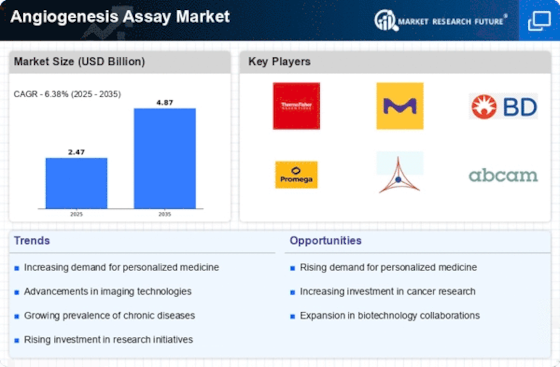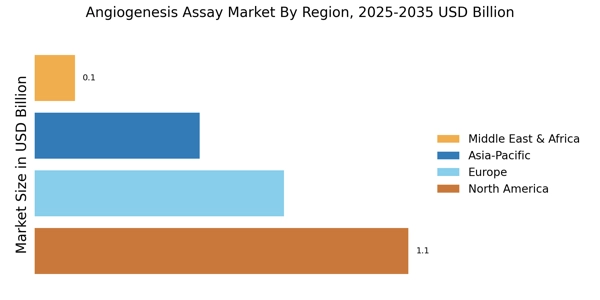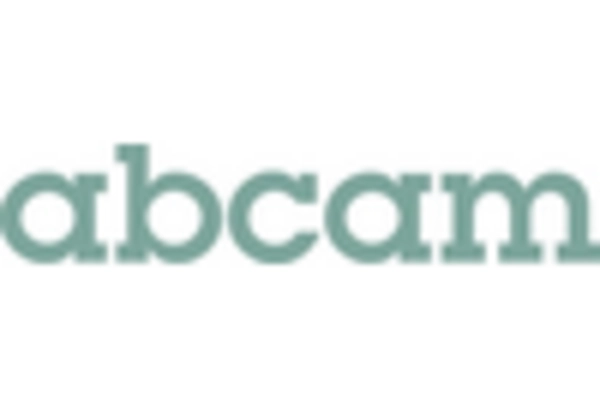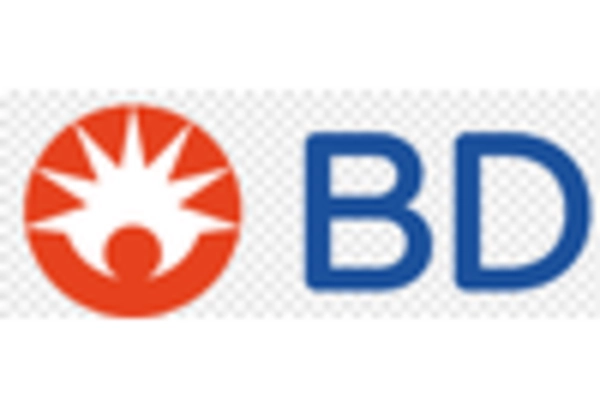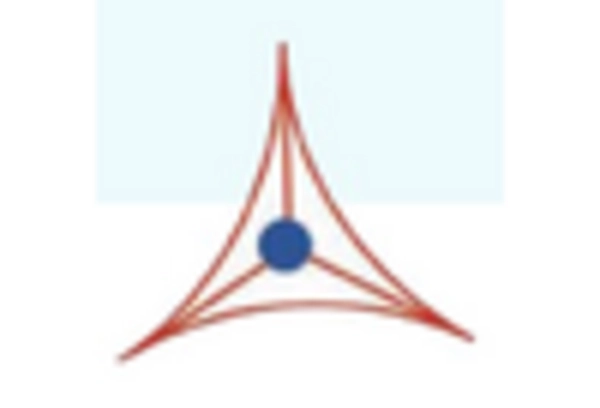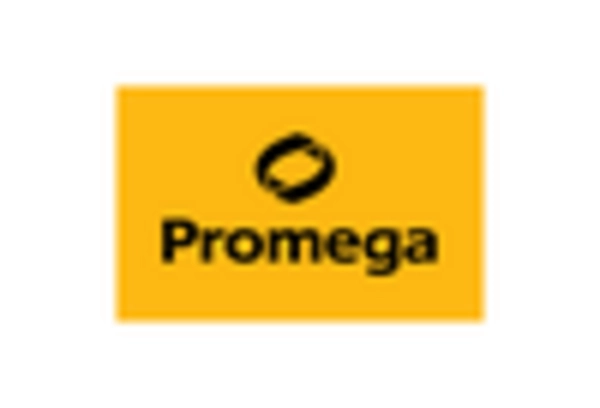Rising Incidence of Cancer
The increasing prevalence of cancer worldwide is a primary driver for the Angiogenesis Assay Market. As cancer is often associated with abnormal angiogenesis, the demand for assays that can accurately measure angiogenic activity is surging. According to recent statistics, cancer cases are projected to rise significantly, necessitating advanced diagnostic tools. This trend is likely to propel the development and adoption of angiogenesis assays, as researchers and clinicians seek effective methods to monitor tumor growth and response to therapies. The Angiogenesis Assay Market is thus positioned to expand, driven by the urgent need for innovative solutions in cancer research and treatment.
Advancements in Assay Technologies
Technological advancements in assay methodologies are significantly impacting the Angiogenesis Assay Market. Innovations such as high-throughput screening and improved imaging techniques are enhancing the sensitivity and specificity of angiogenesis assays. These advancements facilitate more accurate and efficient data collection, which is crucial for both research and clinical applications. The market is experiencing a shift towards more sophisticated assay platforms that can provide real-time insights into angiogenic processes. As a result, the Angiogenesis Assay Market is poised for growth, driven by the demand for cutting-edge technologies that can support the evolving needs of researchers and healthcare professionals.
Growing Investment in Drug Development
Investment in drug development, particularly in oncology, is a crucial factor influencing the Angiogenesis Assay Market. Pharmaceutical companies are increasingly allocating resources to research and development, focusing on therapies that target angiogenesis. This trend is evidenced by the substantial financial backing for clinical trials aimed at evaluating new anti-angiogenic drugs. The market for angiogenesis assays is expected to benefit from this influx of investment, as these assays are essential for assessing the efficacy of new treatments. Consequently, the Angiogenesis Assay Market is likely to witness robust growth as the pharmaceutical sector continues to prioritize innovative therapeutic strategies.
Increased Focus on Regenerative Medicine
The rising interest in regenerative medicine is emerging as a significant driver for the Angiogenesis Assay Market. As researchers explore therapies aimed at tissue repair and regeneration, the role of angiogenesis becomes increasingly critical. Assays that can evaluate angiogenic responses are essential for developing effective regenerative therapies. This focus on regenerative medicine is likely to stimulate demand for angiogenesis assays, as they provide valuable insights into the mechanisms of tissue healing and vascularization. Consequently, the Angiogenesis Assay Market may experience growth as the field of regenerative medicine continues to evolve and expand.
Regulatory Support for Innovative Therapies
Regulatory bodies are increasingly supporting the development of innovative therapies, which is positively influencing the Angiogenesis Assay Market. Initiatives aimed at expediting the approval process for new drugs, particularly those targeting angiogenesis, are encouraging pharmaceutical companies to invest in research and development. This regulatory environment fosters innovation and may lead to a surge in the demand for angiogenesis assays, as they are integral to the evaluation of new therapeutic agents. As a result, the Angiogenesis Assay Market is likely to benefit from this supportive regulatory landscape, promoting the advancement of novel treatments and diagnostic tools.


